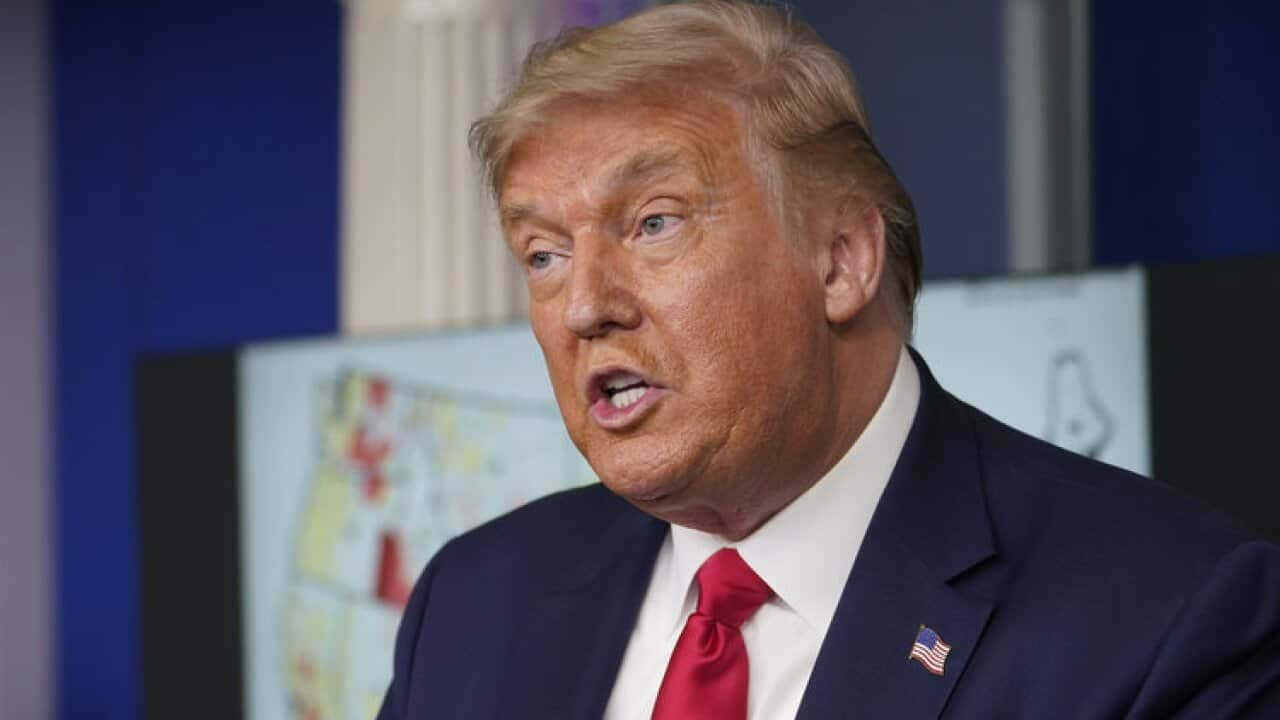Prime Minister Jacinda Ardern has successfully moved to delay the New Zealand election by four weeks.
Coming to the end of her three-year term, the Labour leader is headed to the polls October 12 while the country grapples new coronavirus cases -- the first in just over 100 days.
The country is in lockdown -- limiting movement of most of its population -- as they search for the mystery source and contain the outbreak.
The announcement comes almost a month after President Donald Trump suggested delaying the US election, with claims a fair election was not possible during the pandemic as some states sought to use mail-in voting.
Unlike Ardern, Trump has been unable to stop his country heading to the polls.
Constitutional structures
Trump has no authority to delay the presidential election. The date for the US election is set by federal laws and can only be changed by Congress, which is majority Democrat, and are unlikely to share Trump’s motivations.
The presidency and vice presidency, as outlined in the 20th Amendment, .” So, even if Trump convinced Congress to delay the election, and that date was beyond January, his term would expire.
It is very different in New Zealand, which has no fixed date for elections.
The prime minister usually decides the election date, as dictated by the Constitution Act.
It is their job to tell the governor-general the date of the election, who then puts the gears in motion for an election, mainly dissolving parliament.
Once parliament is dissolved, the Electoral Act 1993 dictates the timeframe where the last possible election date could be held.
The prime minister has a three-year term, so parliament is automatically dissolved three years to the day of the last election results. For this election, that date is October 12. The three-year term of parliament is one of New Zealand’s “”, meaning that a 75 per cent majority of all MPs is needed to extend it.

NZ PM Jacinda Ardern announces that General Election will be delayed Source: Getty Images
Reasons to delay the election
Ardern said she was worried about voter turnout, campaigning and the ability of the Electoral Commission to convince vulnerable populations that in-person voting was safe.
“Moving the date by four weeks also gives all parties a fair shot to campaign and delivers New Zealanders certainty without unnecessarily long delays,” Ardern said.
“Ultimately, the 17th of October, in approximately nine weeks’ time, provides sufficient time for parties to plan around the range of circumstances we will be campaigning under; for the Electoral Commission to prepare; and for voters to feel assured of a safe, accessible, credible election.”
Like Ardern, Trump said he wanted to postpone the election until people can "properly, securely and safely" vote.
However, Universal Mail-In Voting has been his key concern. This is a practice where states automatically mail a ballot to all registered voters within the state -- a ballot that can then be cast by mail or returned in-person to various polling sites.
Trump has said that this practice will lead to fraud and “rig the election.” There is no evidence that Universal Mail-In Voting would delegitimise the US election.

President Donald Trump is heading to the polls November 3. Source: AAP
Bipartisan support
In a statement broadcast to the nation, Ms Ardern said the vote will now take place on October 17, saying: “This decision gives all parties time over the next nine weeks to campaign and the Electoral Commission enough time to ensure an election can go ahead".
New Zealand’s opposition National Party also wanted a delay, as did other key political parties. National leader Judith Collins, last week said that the restrictions meant new Zealanders wouldn’t get fair and accurate information on party policies.
She said it is, “unsuitable to expect there to be a fair and just election at a time when the opposition parties and other parties in government are not free to campaign” and, like Trump, that “postal voting is not good enough”.
Collins wanted the delay to be until at least November.
When Trump tweeted about an election delay, it was clear he did not have cross-party support. This may be largely, in part, because an election postponement has never happened in US history and is almost constitutionally impossible.




